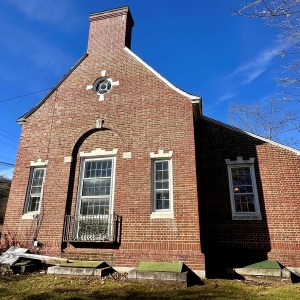National Grid proposes a Northern Pass-like power line from Quebec through N.H.
| Published: 03-29-2017 12:18 AM |
In a possible blow to Northern Pass, another utility giant wants to build a power line carrying Quebec electricity through New Hampshire – but this one would involve little of the right-of-way construction that has generated so much controversy for the proposal from Eversource.
National Grid, which has electricity and gas service in Massachusetts and New York state, released its proposal Tuesday, calling for a billion-dollar line that would come down from the province of Quebec through Vermont, cut across the Connecticut River to Monroe, N.H., near Littleton, then expand existing power lines that run south, passing through a corner of Concord, and end in Londonderry.
Joe Rossignoli, director of the project called Granite State Power Link, said this plan would use existing AC transmission towers for 108 of the 110 miles in New Hampshire, while upgrading the power lines from 230 kilovolts to 345 kilovolts.
“The towers, when those were constructed decades ago, were over-designed for 230 KV, so we predict that 80 percent of those towers can be used, while 20 percent would be upgraded,” Rossignoli said.
The existing right of way, which also contains an HVDC power line, would not have to be widened or altered in New Hampshire except for a few sections at each end.
“There would be virtually no viewshed impact,” Rossignoli said.
This is radically different from Northern Pass, the proposal from Eversource and Hydro-Quebec that would run through central New Hampshire. It has faced years of opposition because it would require new power lines and rights of way in the North Country.
Eversource spokesman Martin Murray said the new proposal should be seen as a confirmation of Northern Pass, rather than competition to it.
Article continues after...
Yesterday's Most Read Articles
 ‘Bittersweet’: The Post on Main Street closes Friday
‘Bittersweet’: The Post on Main Street closes Friday
 Messy parking around Concord’s bus terminal won’t get less messy any time soon
Messy parking around Concord’s bus terminal won’t get less messy any time soon
 Jesse Sullivan pleads guilty to second-degree murder of half-brother, Zackary
Jesse Sullivan pleads guilty to second-degree murder of half-brother, Zackary
 In echo of 2014 struggle, Market Basket board sidelines ‘Artie T.’ from CEO spot
In echo of 2014 struggle, Market Basket board sidelines ‘Artie T.’ from CEO spot
 Historic former Boscawen library building on sale – again
Historic former Boscawen library building on sale – again
 New Concord apartments open in former First Congregational Church
New Concord apartments open in former First Congregational Church
“Today’s announcement by National Grid speaks to the regional need for new sources of reliable and clean power to replace retiring power plants across New England,” Murray wrote in an email. “ISO New England has stated that new transmission infrastructure will be necessary to reach clean energy sources, and warned that we will need to address a loss of more than 4,000 megawatts of electric capacity in the immediate future. Northern Pass and the proposed Granite State Power Link both represent a significant step toward a more secure energy future.”
Although Northern Pass has been in the works for more than five years, National Grid didn’t move forward with Granite State Power Link until Massachusetts decided that large-scale hydropower is “clean energy,” eligible to participate in its push to increase renewable energy in the state.
“When the new clean energy law came in July, then we really started focusing on a minimally invasive path and cost effective way to get Quebec power down into New England,” Rossignoli said. “That was the genesis.”
Massachusetts is expected to issue an RFP within a week indicating what projects are eligible to bid in the next phase of its clean energy push. Only wind and solar projects were included in the first list of eligible projects, handed down in October.
National Grid used to have natural gas service in New Hampshire but sold it to Liberty Utilities in 2012.
The power line in New Hampshire that Granite State Power Link would use opened in 1990. Within the Concord region, it cuts through Salisbury, runs along the border between Webster and Boscawen, clips Concord’s northwestern corner, then runs through Hopkinton, Bow and Dunbarton into Goffstown and points south.
The line eventually goes to Ayer, Mass., where it connects with the full New England grid.
Granite State Power Link would need to build a converter station, which would take the DC power carried through Vermont and change it to AC power for transmission through New Hampshire, to be built on land in Monroe that National Grid owns.
Construction would also be needed in Londonderry to create a switching yard, connecting the project into the grid. National Grid will have to buy some land there, Rossignoli said.
The Vermont portion of the project will be more complicated, since the construction of a new high-voltage DC line next to the existing line will require expanding the right of way.
Granite State Power Link is the third proposal that would carry at least 1,000 megawatts of hydropower and wind power from Quebec into the New England market.
Eversource and Hydro-Quebec have been trying for years to build Northern Pass, which would bring 1,000 megawatts down the middle of New Hampshire, while a variety of investors have gotten approval to build New England Green Power, a $1.2 billion plan to bring 1,000 megawatts into central Vermont using a line that runs under Lake Champlain.
All three proposals would sell the power into the entire New England electricity market, and if all are built they would provide about 10 percent of the electricity used by the six New England states. That leads to questions about whether there is enough market for them all, assuming they get regulatory approval to go forward.
The co-investor with National Grid in Granite State Power Link is Citizens Energy, a Massachusetts-based nonprofit founded by Joseph Kennedy II in 1979 that helps develop “clean transmission projects” and uses resulting revenue from selling power “to finance new charitable programs to help low-income families with energy needs,” said Ryan Chaytors, director of business development for the group.
Chaytors said the group would use 50 percent of the money it makes “to fund energy assistance for local families in New Hampshire and Vermont.”
While it’s too early to know how much money that initiative would involve, Chaytors said it would run in the millions of dollars annually. “Seven figures a year for the life of the project would be a conservative estimate,” he said.
Chaytors pointed to Sunrise Power Link, a 1,000-megawatt transmission project in California’s Imperial Valley, where Citizens Energy is buying rooftop solar panels for low-income homes. If Granite State Power Link is built, Citizens Energy might do something different here: “We tailor specific programs to areas we invest in,” Chaytors said.
Rossignoli said National Grid would talk to towns affected by the project and “invite them to shape the project.”
He pointed to work that National Grid has done on the Vermont Green Line, a $600 million transmission project that would carry power from New York State into Vermont, where it would connect to the overall grid.
“We’ve been very successful with that development model,” he said. “On the top of our list will be talking to community leaders, to get these local communities on board.”
Although Granite State Power Link will avoid many of the complaints about construction that have dogged Northern Pass, one common thread does pass through both power line projects: Even though they pass primarily through New Hampshire, they are both designed largely to meet the electricity needs of Massachusetts and southern New England.
(David Brooks can be reached at 369-3313 or dbrooks@cmonitor.com or on Twitter @GraniteGeek.)
]]>







 Georgia’s Northside in Concord transitions into catering and cooking classes
Georgia’s Northside in Concord transitions into catering and cooking classes ‘You have time’ – Coe-Brown graduates savor the moment
‘You have time’ – Coe-Brown graduates savor the moment Senate lawmakers vote to lift betting limits to attract high-rollers to New Hampshire’s casinos
Senate lawmakers vote to lift betting limits to attract high-rollers to New Hampshire’s casinos
